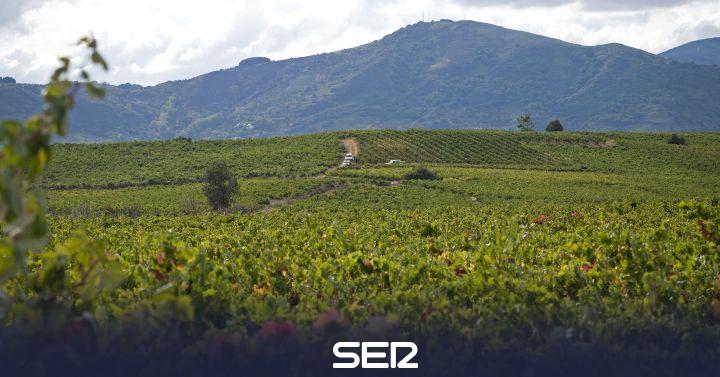The Regulatory Council of the Denomination of Origin Bierzo, by agreement of its Board of Directors and on behalf of winemakers and winegrowers, has submitted to the Industry and Energy Area of the Government Sub-delegation in León a set of allegations to the request for prior authorization and the Environmental Impact Study of the “Trabadelo Wind Farm” and ask for an unfavorable pronouncement.
The Regulatory Council affirms – and thus explains it in its allegations – that it is “directly affected”, not only for the wind turbines, but also for the high voltage lines, the roads and the infrastructures necessary for their operation and has shown in its writing its “more resounding negative”.
The affected area is included within the scope of production of the Bierzo Designation of Origin Regulatory Council, which will seriously affect the vineyards and wine production, a sector of vital importance for the Bierzo economy. The planned expropriations will affect a multitude of owners that have been investing in their lands for generations and that today make up the cultural and economic landscape of the Region.
“This project collides, endangers and causes a deep damage to the economic and sectoral interests of wine production and the Bierzo Designation of Origin ”, the Regulatory Council clarifies in its allegations.
The regulatory body also argues that the content of the Environmental Impact Study is “insufficient and faulty” because it does not value at any time the existence in El Bierzo of a large number of quality figures, guarantee marks, and protected geographical indications, so request the return of the Study to the promoter for the absolute absence of assessment of the impact on tourism and the wine and agri-food activity, among many other aspects.
“Agriculture and tourism -and the services linked to them- are some of the main sectors in the area, without the Study detailing or listing the jobs associated with the primary sector and without adequately taking into account the direct impact on it. for the installation”.
The Regulatory Council also denounces that there is a clear clash between the project and the quality brands, so it cannot be considered positive from a socio-economic point of view. “A macro wind farm of these characteristics neither fixes the population nor creates stable employment that contributes to an improvement of the circumstances of the place where it is installed”.
“Instead”, Notes the Council,“the development of agri-food production provides work, economic resources, consolidates the population in the area and opens the way to quality tourism. All this will be affected with this project”.
The planned wind turbines will be located in places and districts that are very representative of the local vineyard, to which are joined by 27 kilometers of evacuation lines that will cross the center of the region destroying vineyards, which it will affect a multitude of owners.
UNMISSABLE LANDSCAPE AND ACOUSTIC IMPACT
According to the Council, the installations projected for the wind farm will have a very unfavorable landscape impact. On the one hand, the wind turbines will reach a height that exceeds 200 meters and their presence will dominate the visual basin of the area. And on the other, the layout of the high voltage line will cross the vineyards and the characteristic landscape of the area, “Causing a deep damage that has not been properly assessed.”
To this must be added that the project will severely affect the Cultural heritage , an extreme that is not correctly evaluated in the Environmental Impact Study, and that does not even foresee how it may affect the Natural Monument of Las Médulas, declared world heritage by UNESCO.
The park will be adjacent to highly protected areas that will be negatively affected. The Regulatory Council especially highlights the effect on the Biosphere Reserve of the Ancares Leoneses, the Aquilian Mountains and numerous mountain ranges and mountains all belonging to the Natura 2000 Network.
The project will generate a huge visual and acoustic impact in the Santiago’s road, another of the great economic engines of the area, which has not been adequately evaluated either.
The Study also does not adequately contemplate, as required by Law 21/2013, the effects on population, human health, flora, fauna, biodiversity, geodiversity, soil, subsoil, air, water, climate, climate change, landscape, material goods, heritage culture, protected spaces and the interaction between all of them during the execution, exploitation and demolition or abandonment phases of the project.
In addition, it is reported that the Study presented lacks real wind measurements, only estimates, which makes it clear that The real viability of the project has not been justified in any way.
The regulatory body for Bierzo wines also maintains that the Study fails to comply with Law 21/2013 since it does not adequately take into account the synergistic effects and cumulative with other existing activities and infrastructures.
The Regulatory Council warns in its allegations of the existence of discrepancies or errors in the calculation of energy needs and that the greenhouse effect emissions derived from the manufacturing and construction process have not been considered. “The Study lacks a realistic balance of its footprint on the landscape and ecological processes”, He points out.
“This project is not covered by the corresponding electrical planning, and in no way can it be considered a positive contribution to the fight against climate change, it entails negative and unacceptable impacts; therefore, an unfavorable environmental impact statement must be issued ”, concludes the Council.
–


:quality(80)/cdn-kiosk-api.telegraaf.nl/5206920c-cb50-11eb-ba7b-02c309bc01c1.jpg)